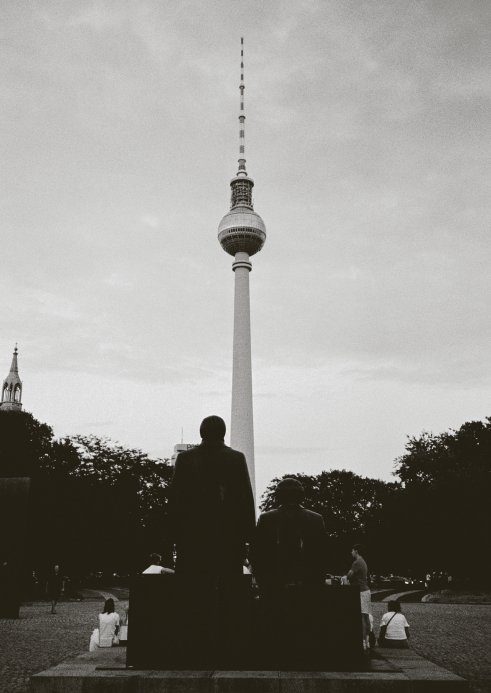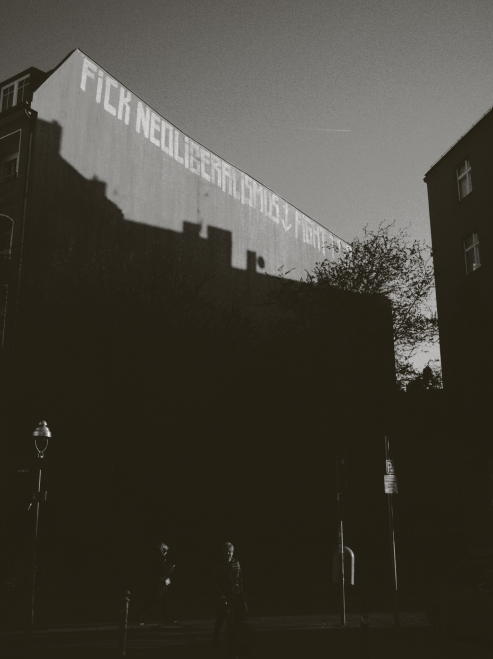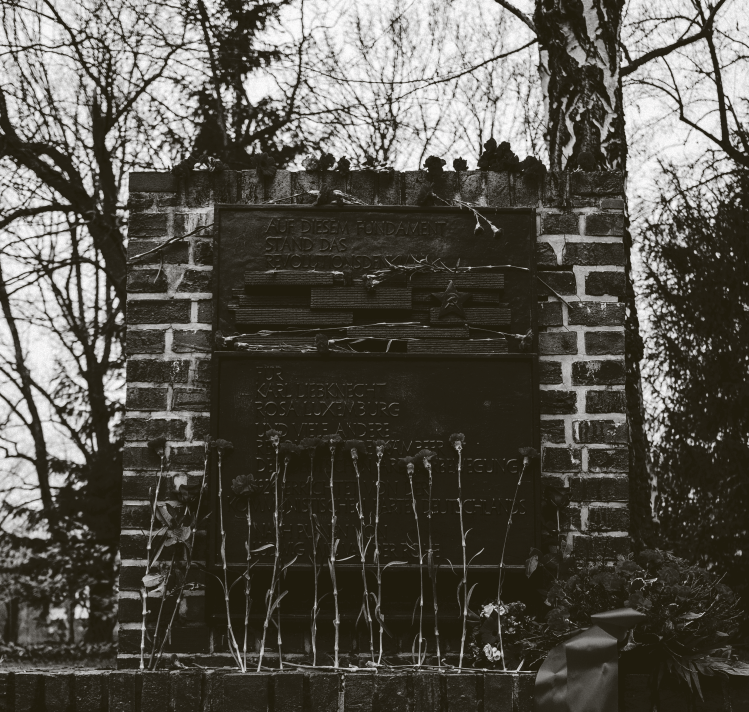Tom Morello is the guitarist of „Rage Against The Machine“ and plays as a solo guitarist as „The Nightwatchman“. As a political activist he supports labor struggles, immigrant rights and fights against the death penalty. Straßen aus Zucker met Tom before a concert in honor or the 100th anniversary of the communist folk singer Woody Guthrie.
In our latest issue we deal with strategies for radical social change. According to you, what are the best strategies?
I always hesitate to dispense advice for situations I am not part of, but I will tell you about my experience in the US, and if there’s some lessons to be drawn for your readers, they can decide for themselves. Over the course of the last year things have changed dramatically in the US. I know that in Europe, the issue of class is more hotly debated among people who want to see a different world. That is not the case in the US. That’s the thing that’s been the most encouraging about the pro-union and the Occupy movement there. The one thing we have on our side is that people feel their backs are against the wall economically, the contrast is more stark than ever, and people’s interests are much more clearly visible in times where there is this global economic downturn. With regards to organizing strategies, continuing to think outside the box is the only way to gain ground. Because of the monolithic power structure that we face and that is against us.
What do you mean by this „monolithic power structure“?
The realization that it’s not 99 vs. 1 %, it’s 0.001%. The untouchable decision-makers – whether it’s the IMF, World Bank, G8. People who divide the world for their best interests. That means if AIDS drugs are not distributed in Africa because it’s less profitable – so be it. That’s not affecting their families. If it means that much of the US becomes a sweatshop – so be it, if it doesn’t affect their yachts.
But isn’t capitalism a system in which we all have to play a part in our everyday lives? Or do you really think the problems are caused by conscious decisions by the people who own the yachts?
NoNoNo, let me make that clear. If the people who own the yachts behaved differently they’d be out of their jobs. It’s structural, the structure is set. But those roles are a crucial part of the structure.
What role does alternative media play in organizing? You yourself run a website for activists, Axis of Justice
I think alternative media is crucial. But I think it’s important not only to educate via alternative media but also to inspire. My twin passions are music and activism. I always wanted my music to be political and I always wanted my activism to be as much fun as my music. For a while I was a door-to-door canvasser, I was horrible at it and it was boring. Finding a role in the struggle that matches your talents is I think important. There were always people who approached me after shows and asked me, „how can I get involved?“. They were people just like me, teenagers just like me, who saw that the world wasn’t right, but there was no way to plugin.So the first thing that we did was a grid where you click the state you were in and the issue you were interested in, so this afternoon you could get involved. That was the idea, to be an easy bridge to activism.
And what role can music play?
Speaking specifically for Rage Against The Machine: There were plenty of fans who never learned about politics. But there were many more who never knew anything about the politcs before listening to the music and they were introduced to a whole world of ideas by that band. For me it was The Clash and Public Enemy. They didn’t teach me about issues, they made me realize I wasn’t alone in what I was thinking. And there was a truth to both the lyrics and the music that resonated with me, that made me think that were is a world beyond the confines of the small conservative town I grew up in.
What was it that got you into politics actually?
My introduction to politics was that I grew up being the only black kid in an all-white town. And from the time I was four, five years old I experienced racism first hand, so the feeling of injustice was very personal when I was a little kid.
But how people interpret these experiences is a whole different matter. Whether they see them as racism, or for example blame themselves instead.
That’s right. In that regard I can only thank my mother. When I had these experiences as a five-year-old she told me about Malcolm X. So that certainly was an introduction to self- defense and the idea that injustice needs to be confronted. And in high school there was a small group of us, the anarchist contingent, who were pretty sure we had it all figured out. We were going to leave the high school a burning husk by the time we were done. And we had an underground paper and did some controversial things. But the protest, when I was best at it, was also a form of selfexpression. It was enjoyable to write these articles and that I had to research – whether it was Central American death squads or apartheid or the cartoons that we drew for the stories about the fact that the dean of the school was a dick.
What do you think about the recent Occupy movement, what is its influence in the United States?
I played at about 16 Occupy camps. Now a lot of the encampments have been pushed out. But what it did provide for a time and which remains in the consciousness of the people who are interested in changing the world is a location. It’s not just I’m getting a twitter about a thing or once every six months we march against the war. No, on any given day you can just stop by. It’s like things aren’t right and here’s a community of people who feel the same way. A key part of that was that it made people feel a lot less isolated. And I think it’s isolation that makes people feel like they can’t do anything.
And did the Occupy movement in the US have any impact on young people at all?
Occupy has opened the door to a new generation of young people to the realization that they can have something to say, they can have their hand on the wheel of power. There was a lot of frustration in a lot of younger people prior to Occupy. They asked themselves:What are the steps that I can take as a 19-year-old to do anything? In the US it’s so insular. But when people realize that even in a small way on one particular afternoon they can have some sort of impact, the world was different than what it was when they woke up that morning, that’s a lightbulb that can go off. If you start pulling that thread the whole sweater can start to unravel.
You are a member of the radical union „Industrial Workers of the World“ and support labor struggles. What do you think – should we fight for better working conditions or for the abolishment of work?
In my youth I was the fiery anarchist in high school. I had it all figured out and I was gonna let everybody know exactly what utopia was gonna be like, I was gonna name the streets of utopia before lunchtime in the cafeteria. I had it all worked out. Now I look at it more as what my role is in social justice struggles. My final goal is a society that is just: that is economically just, politically just, and that is one where everyone’s basic needs are met. On a day-to-day basis, how does that play out? If we force a right-wing governor of Wisconsin to quit that doesn’t end capitalism. But it strikes a blow for justice and it provides the belief that we can have a momentous change like that. At one point the Berlin wall was thought to be an eternal thing, that apartheid was something that was never gonna go away, that women would never be allowed to vote. Those are things which were entrenched as the idea that we must always be a capitalist society where there are rich and poor. Any world you can envision, you can make happen, but you have to begin taking some steps to do it.
For further reading
About Occupy and a critique of capitalism by Kosmoprolet (Berlin/Freiburg/Zurich)


